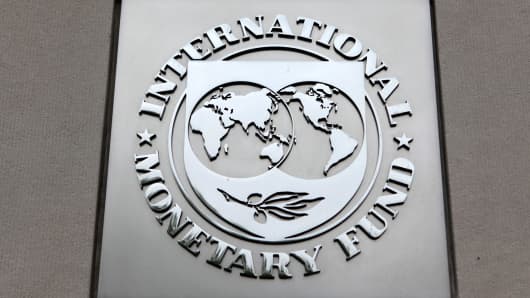Across the world, technology still offers finance massive potential growth. Mobile telephony has given customers 24-hour access to financial services, even in remote areas or while in transit. In response, institutions should do more to enable access to their services through every type of new platform and device, be that smartphones, tablets, or social media. The Internet, for instance, has already enabled exponential growth in peer-to-peer payments. Financial firms should at least contemplate similar ambitions for peer-to-peer lending. Online broking has cut costs for investors globally and opened up access to a vast store of information. Now providers should introduce new tools to enable consumers to analyze this information more efficiently and settle on the right products or services for their needs.
Read More'Weak and uneven': IMF cuts global growth forecast
Technology can also help power growing financial inclusion, particularly in emerging markets. In Africa, for instance, bank credit is less than 30 percent of GDP. And yet access to mobile telephony has risen to 75 percent in just 12 years, giving the continent the perfect medium to lend more to businesses and individuals. In Kenya, a quarter of GDP already flows through mobile devices. Mobile banking enables borrowers to access funds even in remote or impoverished areas without traditional telecoms and other infrastructure. Financial firms should do more to seize on these advances and help African borrowers tap not only traditional but also nascent sources of cash, including crowd-funding and peer-to-peer finance.
One recent example is India, where the government recently opened 15 million accounts for unbanked Indians as part of a financial inclusion drive. Such moves will help steer India's residents away from "black markets" in financial services and facilitate greater saving, borrowing, and investment. But this particular push relied too heavily on developing inefficient physical infrastructure, such as branches and ATMs. In a country like India, where mobile telephony is already relatively widespread, there is an opportunity for established providers to introduce a greater mobile banking element, broadening access and cutting out a costly phase of development.
Read MoreWhy oil's decline isn't boosting Europe
Nor are emerging markets the only growth opportunity. Ongoing deleveraging in the developed world, particularly Europe, creates opportunities for alternative providers of finance. In Europe, although overall demand for loans may still prove weak, borrowers who do want cash are facing an environment where credit is anemic. The money supply has grown just 2.4 percent over the past 12 months. Providers of alternative finance already see Europe as an opportunity, and firms have already been raising substantial sums for European private debt funds and other such vehicles.
Growth in financial services is likely to be more selective than before the financial crisis. And that's not a bad thing. But at the IMF and IIF meetings this week, financial institutions should not focus the agenda exclusively on stability at the expense of growth. Robustness comes not only from capital buffers and regulation, but also from diversifying the financial sector, boosting bottom lines, and brainstorming new ways for money to flow through the economy. The industry should treat the summits in Washington this week as a platform for innovation as well as managing risks.
Read MoreRoubini reveals his black swan scenarios


